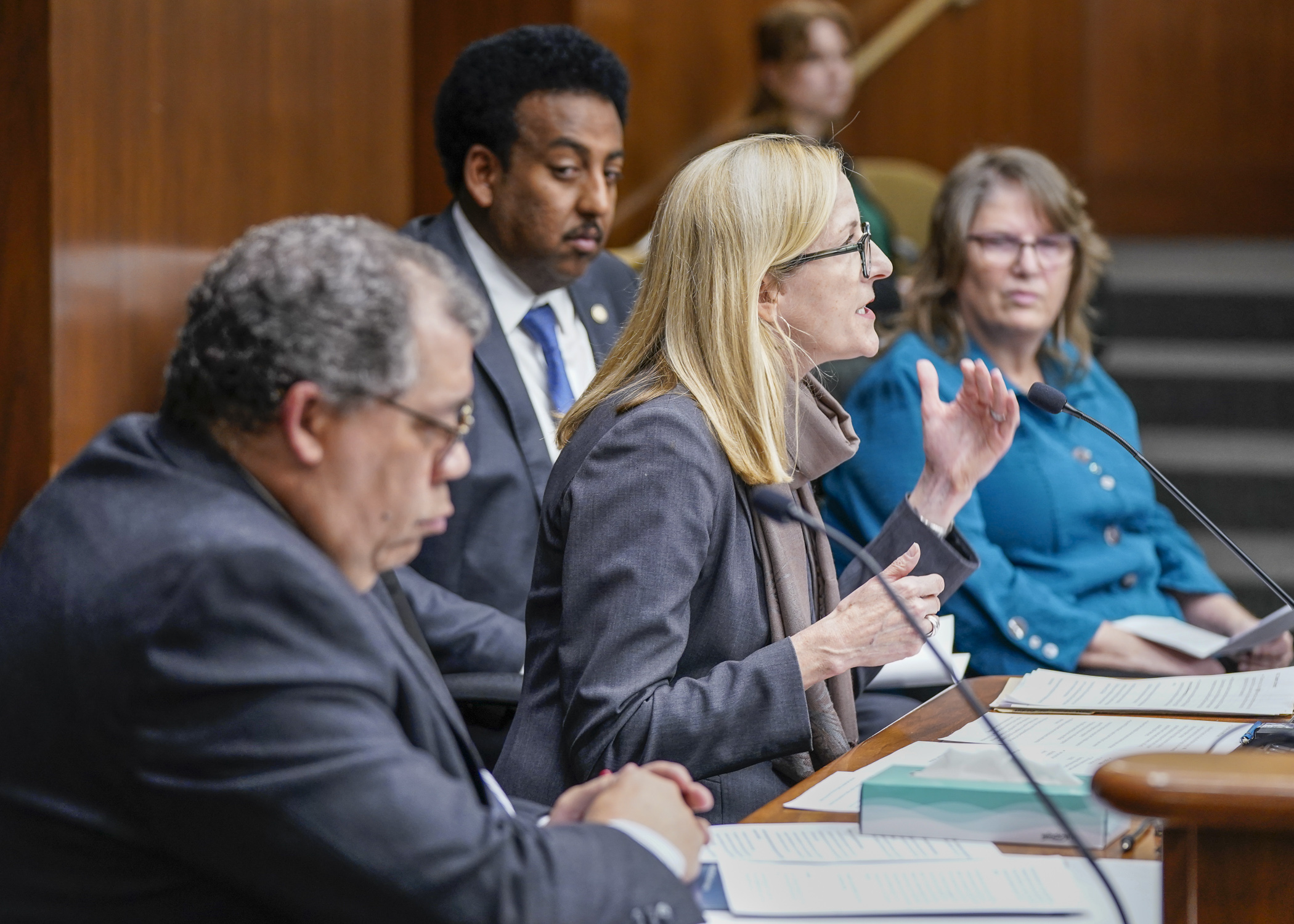Critics chastise $120 million relief program proposed for nonprofit housing providers

Loss of rental income. Additional maintenance costs. And increased operating expenses for utilities, insurance and property taxes.
Due to all the above, Rep. Samakab Hussein (DFL-St. Paul) sponsors HF2632, which would mitigate these financial burdens for eligible nonprofits who provide affordable housing.
The bill would appropriate $120 million in fiscal year 2023 to the Housing Finance Agency to establish a stable housing relief grant program, which would provide grants to nonprofits currently suffering considerable detrimental financial impacts because of recent economic and social conditions.
The House Housing Finance and Policy Committee laid the bill over Tuesday for possible omnibus bill inclusion.
To determine awarded amounts, some math must be done.
Grants would equal “the percentage of the total number of units an eligible organization certifies that it owns or controls in the state of the total number of units certified by all eligible organizations” multiplied by the full appropriation. Grants may not exceed $4,000 per certified unit.
The past three years of the pandemic, civil unrest and economic trouble have created some of the most challenging conditions in history for these organizations, Hussein said.
Paul Williams, president and CEO of Project for Pride in Living, said his organization and the other three that brought this proposal forward — CommonBond Communities, Catholic Charities and Aeon — have documented an anticipated loss of $60 million.
Part of these costs incorporate the excessive wear and tear caused by residents staying in their units more often than normal during quarantine, said Nancy Cashman, executive director of Center City Housing Corp.
Combine the lack of rental income with increased costs and damages, and the organization has had to use more reserves to support properties and keep them running, she added.
Collectively, nonprofits have delivered most of the deeply affordable housing in Minnesota, said Deidre Schmidt, president and CEO of CommonBond Communities. “We have gone above and beyond bricks and mortar, bringing social services to help residents succeed in that housing.”
Not everyone, however, appreciated the bill targeting nonprofit organizations.
Rep. Jeff Dotseth (R-Kettle River) unsuccessfully offered an amendment that would have extended eligibility to private, for-profit housing providers experiencing similar financial difficulties.
“They’re dealing with the same issue. Yet, we’re going to use taxpayer dollars to bail the nonprofits out,” said Rep. Brian Johnson (R-Cambridge).
Related Articles
Search Session Daily
Advanced Search OptionsPriority Dailies
Speaker Emerita Melissa Hortman, husband killed in attack
By HPIS Staff House Speaker Emerita Melissa Hortman (DFL-Brooklyn Park) and her husband, Mark, were fatally shot in their home early Saturday morning.
Gov. Tim Walz announced the news dur...
House Speaker Emerita Melissa Hortman (DFL-Brooklyn Park) and her husband, Mark, were fatally shot in their home early Saturday morning.
Gov. Tim Walz announced the news dur...
Lawmakers deliver budget bills to governor's desk in one-day special session
By Mike Cook About that talk of needing all 21 hours left in a legislative day to complete a special session?
House members were more than up to the challenge Monday. Beginning at 10 a.m...
About that talk of needing all 21 hours left in a legislative day to complete a special session?
House members were more than up to the challenge Monday. Beginning at 10 a.m...